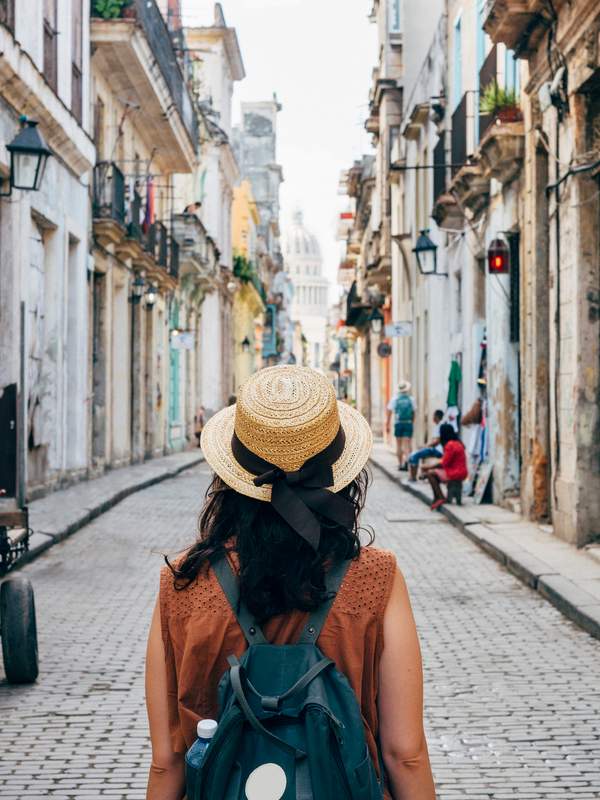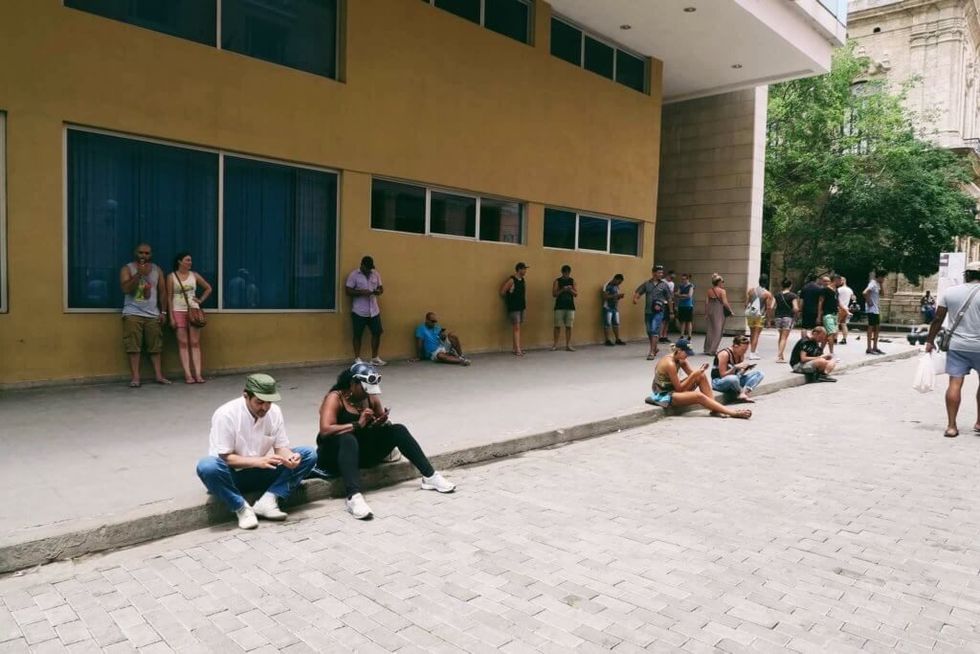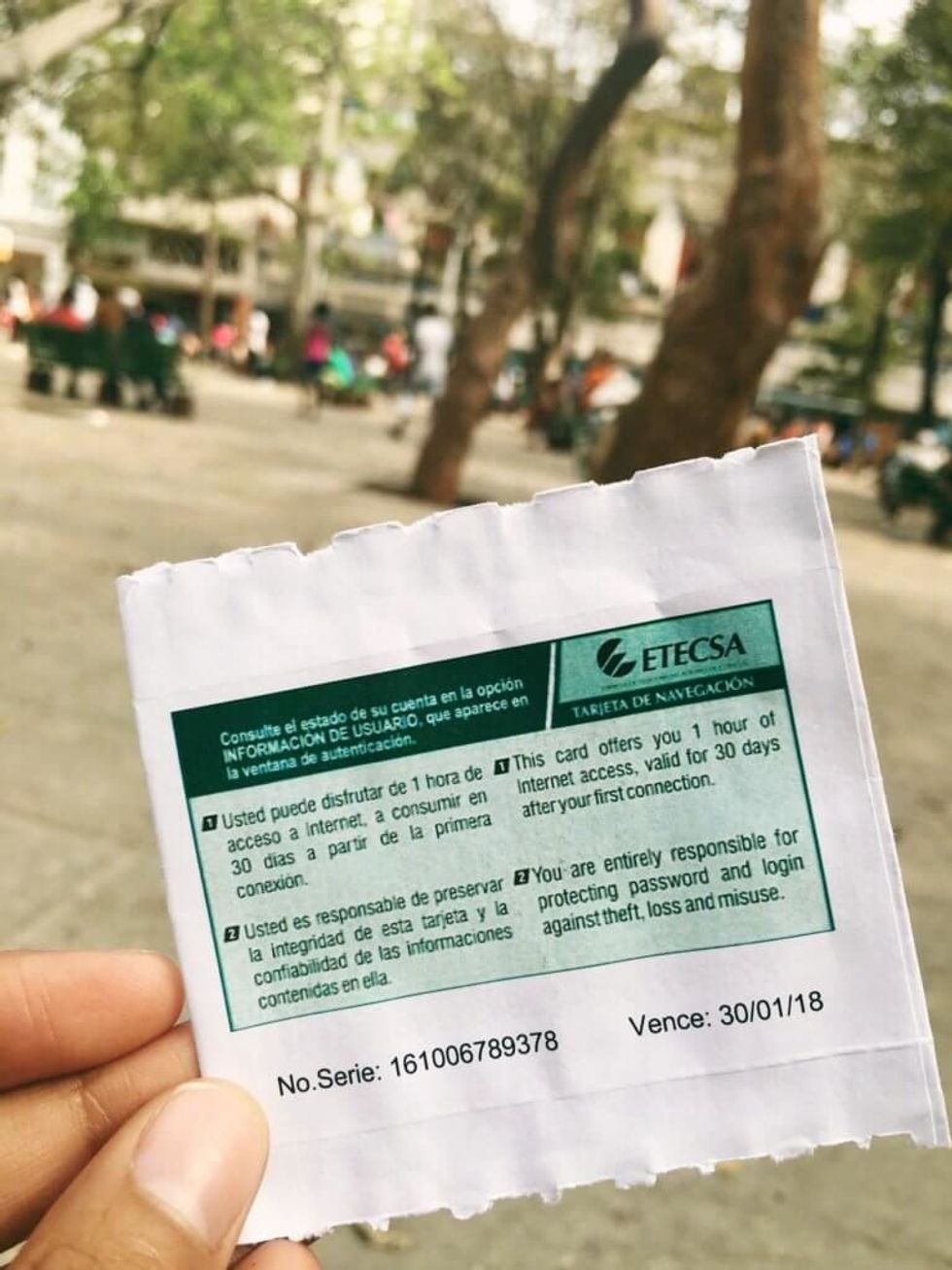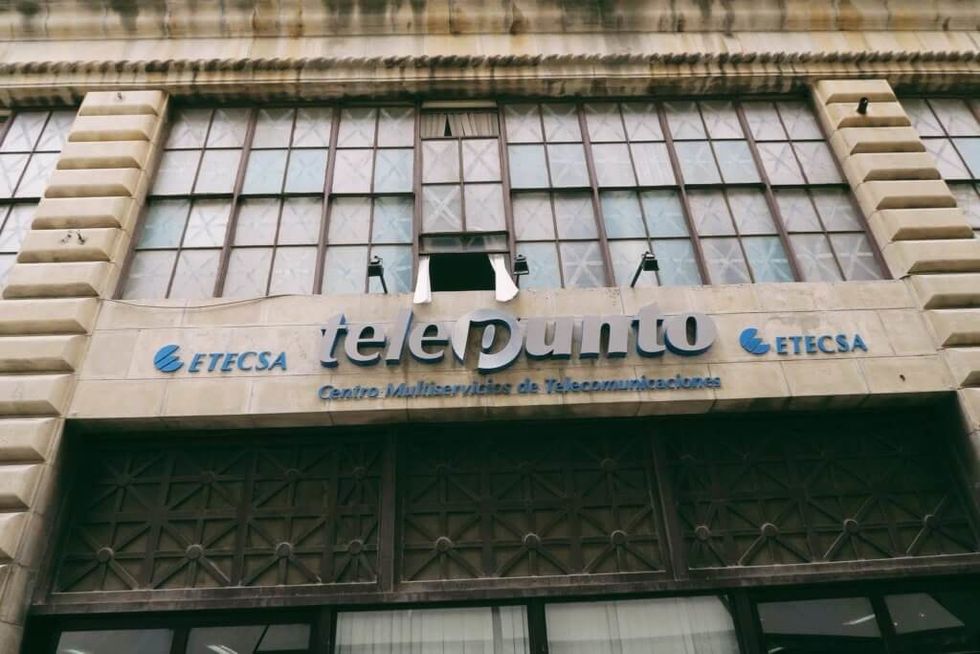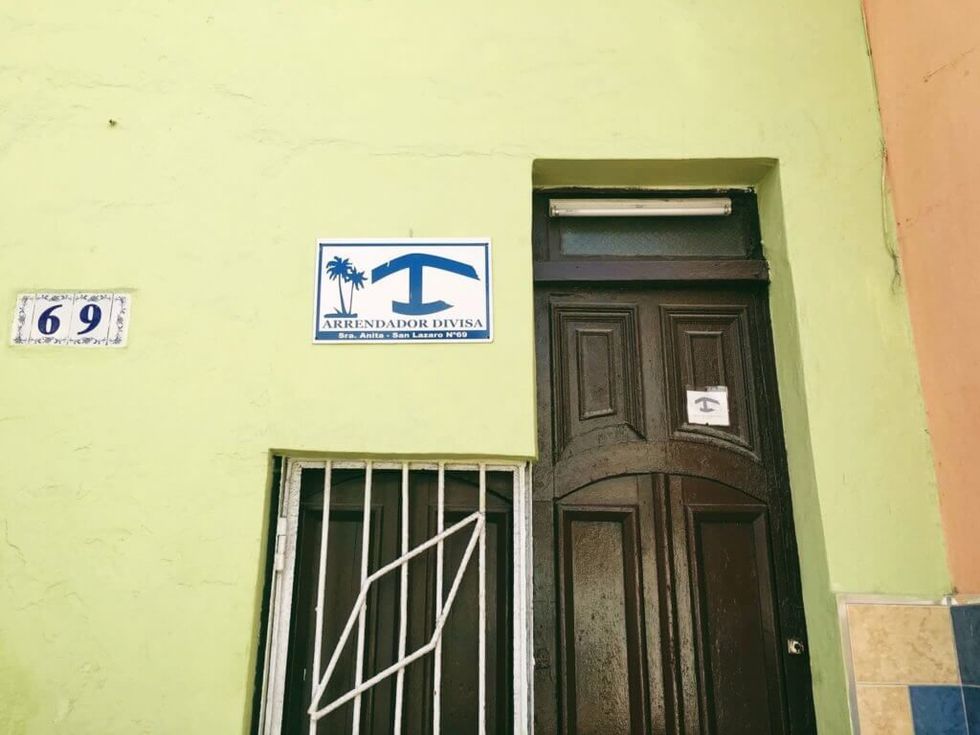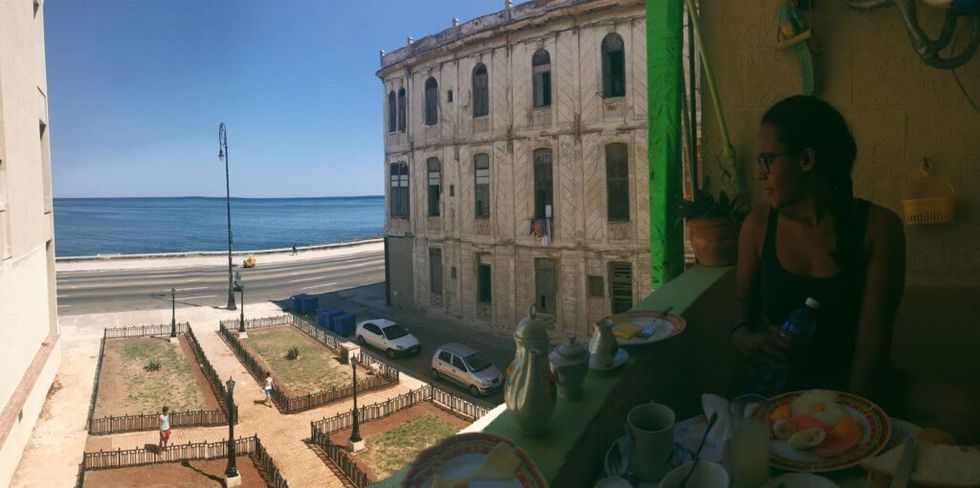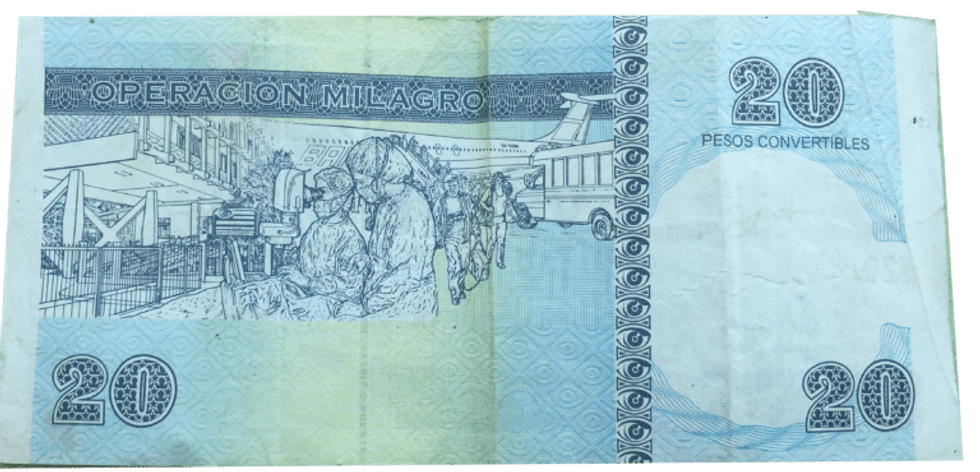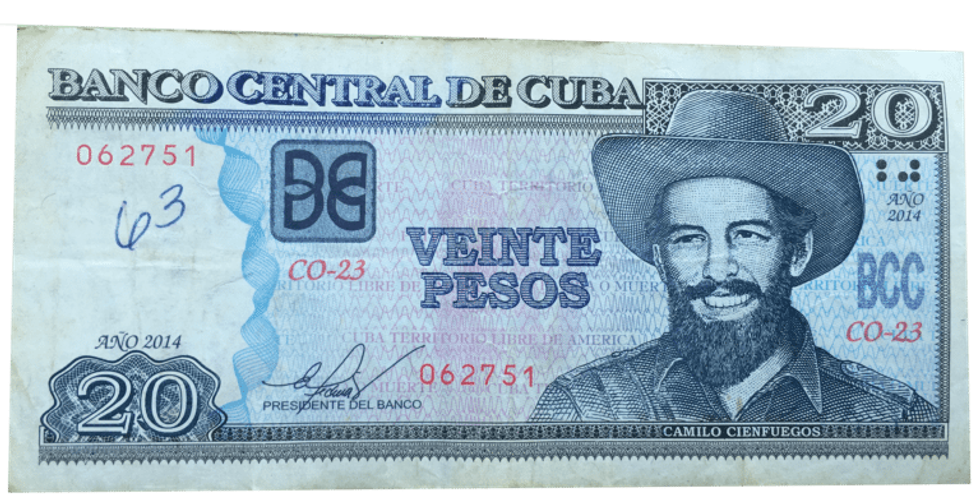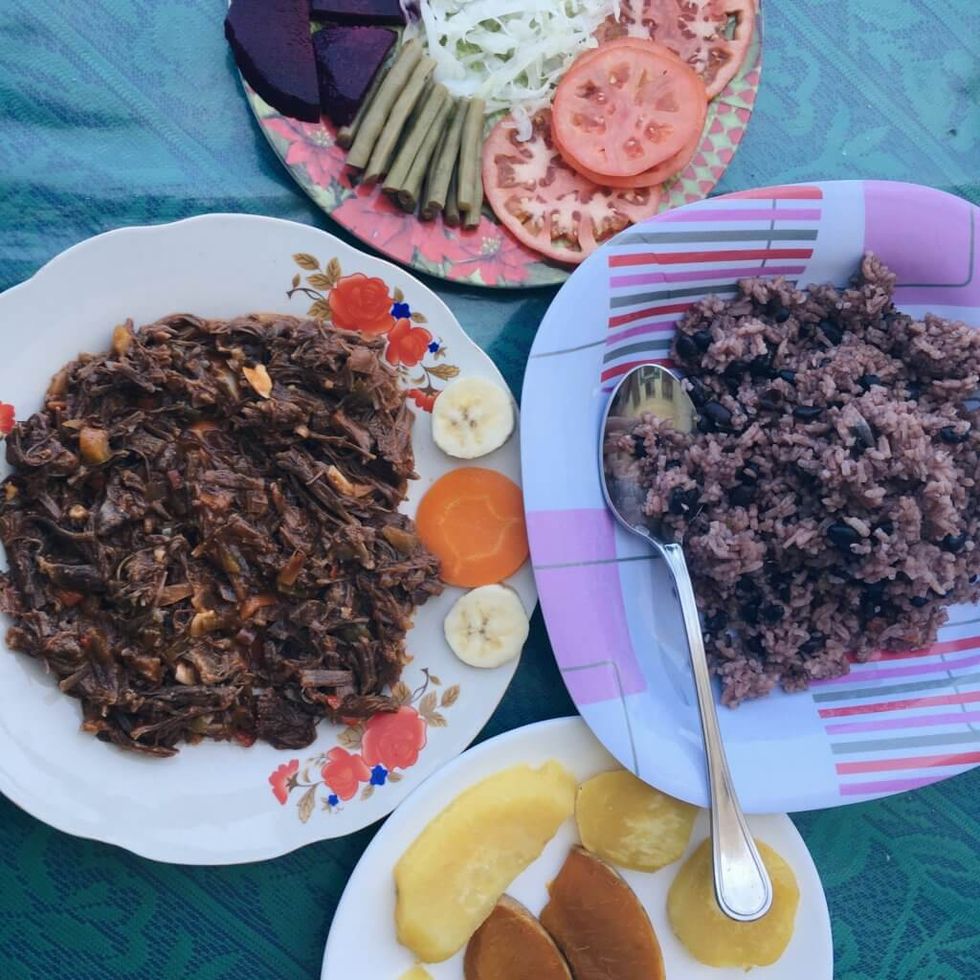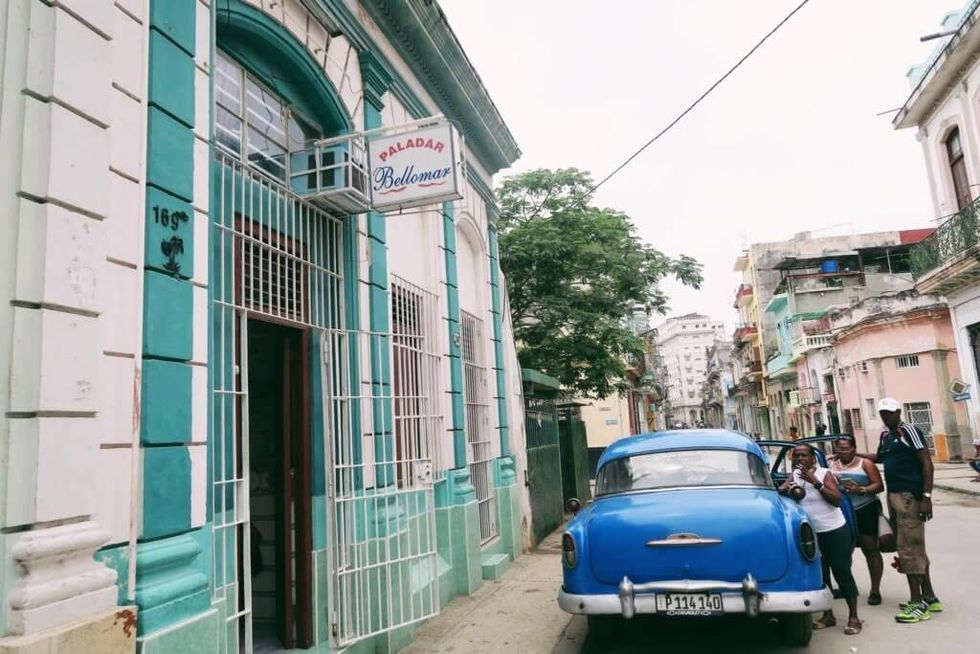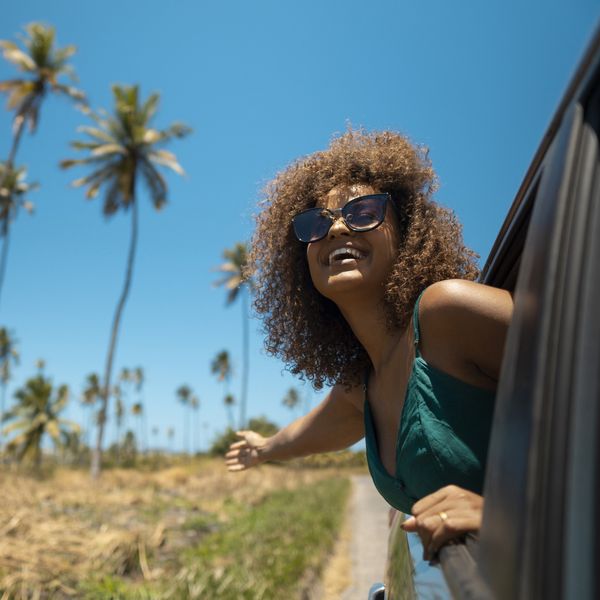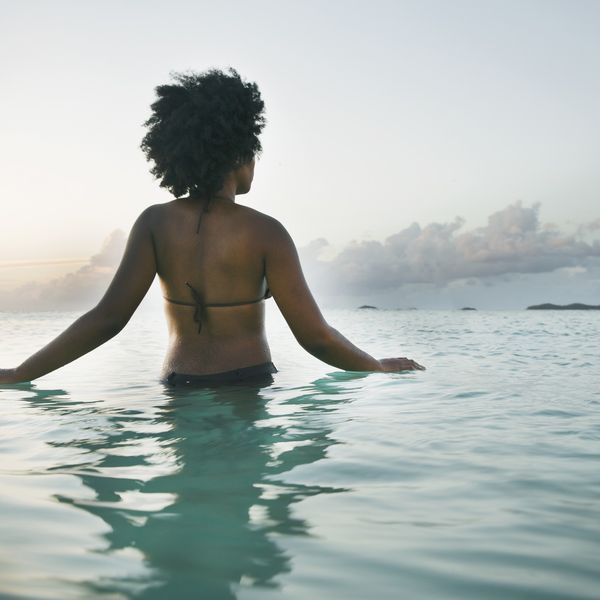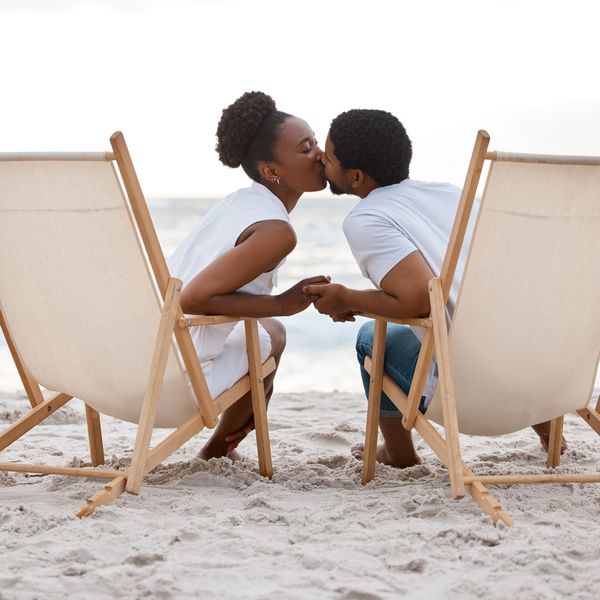Cuba has been on my “must see before I die" list for about ten years now. Something about the impossibility of it made it more appealing to me. I wanted to experience a country that wasn't dominated by consumerism, a place where new trends rarely reached, and most of all, I wanted to experience what it meant to live a Cuban life. And now, since Obama took a trip to start mending the not-so-stable relations between both countries, I knew it was my last chance to visit before McDonalds and Starbucks began plopping their consumerist claws on the island. But wasn't that everyone's thoughts in the summer of 2016?
In May 2016, I took a 20-day trip to do a little research, embedding myself as a Cuban look-alike with an American thought process. What I didn't know at the time, was that this trip would put my travel booking skills to the test. Of course, because I'm cheap and refuse to pay for a travel agent to book my trip from start to finish when I have a brain and Google at my fingertips.
Then I fell flat on my face when I learned that Cuba has extremely limited access to internet, creating a predicament for someone like me who likes to research details about a country before diving in head first.
Due to the lack of information available about Americans going to Cuba, I figured I would make a research trip out of it all to write this blog that I was needing all along. Here are all the things Americans need to know before going to Cuba.
Plan How You'll Book Your Ticket to Cuba
Six airlines were approved to fly direct flights from cities in the USA to Havana, but let's not disregard that you'll probably have to pay big bucks to get the comfort of a 45 minute trip from Miami.
I did it the old fashioned, cheap way, which meant a lot of risk taking and hitting up Mexico before heading on to Cuba. I found my flight on Skyscanner from LAX to MEX – the largest airport I've ever seen, and from there booked a flight to Havana. The entire trip time was about 10 hours with a four-hour layover, and cost me no more than $750 round-trip. On the way back, I booked from Havana to Cancun, and Cancun back to the USA. I've heard Cancun's airport is significantly better to enter Cuba, because unlike Mexico City, you won't feel like you forgot the memo to pack your track pants and running shoes.
Buy International Health Insurance
Again, this information wasn't BOLD or outlined anywhere, but while I was researching, I came across a few articles that stated all foreign travelers booking a trip to Cuba must have international health insurance to enter the country. Imma be real; I've never bought travel insurance or international health insurance before, which is probably careless.
Whoops.
After closing several tabs that quoted about $200 for unnecessary insurance policies, I came across the company Roam Right that gave me basic insurance for a month of coverage for only $15. The bonus with this was that they didn't only cover health incidents, the policy also had trip coverage listed and $300 of reimbursement if any luggage was lost, among other things that gave me more peace of mind when planning such a stressful trip.
I entered and left the country fine without having to show anyone my insurance policy, but it was still comforting to have spent the extra $15 for a tiny bit of ease.
Buy a Tourist Card
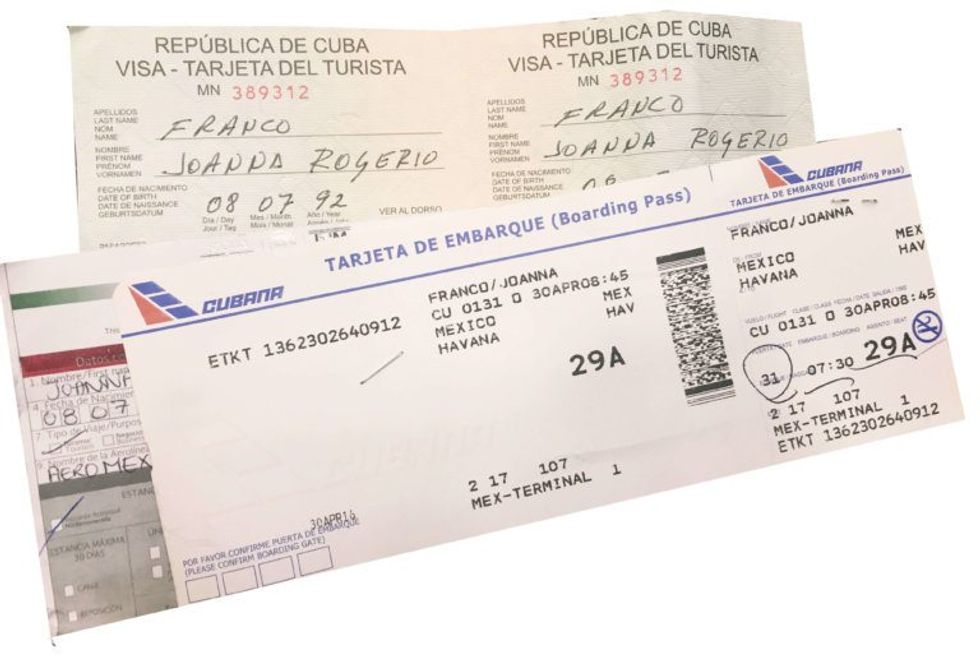
I've taken trips abroad in which you need to go to the country's embassy ahead of time and pay to apply for a visa, and anxiously await a response. I've also gone to other countries like Egypt, where you simply get off the plane and buy a visa when you're already in the country.
Cuba uses neither of the two systems that I've experienced, and it seemed like no one could explain how I could get a freaking visa/tourist card to go to Cuba before getting to the airport.
What You Need to Know Before You Travel to Cuba
Some flight and tour companies sell you the tourist card with your flight – make sure that it's included if you're buying a direct flight from the USA to Cuba. Since I was a cheapo, clearly that wasn't my case.
If you book with a travel agent, they'll most likely handle this for you as well.
OR if you're going the old school way, you'll need to buy it right next to the check-in counter of the Mexico City airport. There will be a tiny podium with some janky signs posted about fine print policies – don't expect an easy “BUY TOURIST CARD HERE" sign, because that'd be way too easy. There will most likely be an airport worker taking passports and scribbling on pieces of paper. That's exactly where you need to go to ask about your “tourist card." After you find the podium, it's all simple and straightforward (finally, jeez). You pay $25 USD for a visa that lets you stay in Cuba for 30 days. You have the option to renew for an additional 30 days once in Cuba.
Prepare To Have Limited To No Connection
As of now, there's absolutely no way to get cell phone service with American telecom companies in Cuba. Don't even bother buying international texting or some sort of “global" cell phone plan, because it won't work. You will also experience the least amount of WiFi you've ever experienced; which is great in the long run. It's one of the few places left in the world where you can actually enjoy your time in the country without posting about it every two minutes.
In order to plan for this lack of connectivity, download all the entertainment you'll want for your duration abroad. Take screenshots of your flight bookings and documents as back up. Write down important addresses you'll need when you arrive in Cuba. Become best friends with a notebook and pen. And lastly, notify your family that you'll truly have limited connection when you arrive. If they're worried, give them your flight information so they can check when you land in Cuba.
Once you're settled, you'll be able to pay $2-$10 for Nauta WiFi cards that will give you one to five hours worth of internet that can only be accessed in public parks (nothing beats tweeting and sweating), on random corners, and inside hotels. If you see a group of people standing around outside, it's because they're updating their Facebook statuses.
You'll be able to buy the best cards at an actual ETECSA Telepunto store (where Cubans go to buy their phone minutes and internet cards), or go to any public park and buy a slightly over priced “tarjeta" from guys sketchily selling them on the street.
Try to get as close to these prices as possible:
1 hour – $2CUC
5 hours $10CUC
Accommodation: Booking a Casa Particular
Since Cuba is pretty new to the tourist game, options for accommodations are a little bit different. There are basically no hostels and pretty few luxury hotels, that I clearly won't be staying in.
The only other option is staying in a Casa Particular. Think of a Casa Particular of a temporary homestay, almost like an Airbnb (which also exists in Cuba, with a twist, see below). Here's the basic idea behind a “Casa Particular": if Cubans have extra rooms in their homes that they'd like to rent, or entirely vacant apartments, they'll put a sign on their door with the iconic blue anchor to show their vacancy and that they're a legal Casa. Sidenote: blue signs are for tourists, red signs are for Cubans only.
I found my first Casa through a friend, it was on the pricier end of the spectrum ($45/night for two people) for a private apartment with a balcony facing the Malecón and the ocean. It was definitely worth every dollar, if you'd like this casa's contact information, email me: jo@damonandjo.com with subject line “Casa in Cuba."
Casas can be as cheap as $15/night for up to two people, but cheap rooms usually don't have windows, which is a personal deal breaker; traveling ain't so good when you can't see anything.
Most Casas have the same amenities as you would a hotel; usually private bathroom, clean towels, sheets, etc, don't count on ever having WiFi though!
Also, it's important to know that you can book listings on Airbnb.com only BEFORE getting to Cuba. Once in Cuba, you'll be blocked from actually booking rooms through the site. Book your accommodation in advance to avoid the stress of knocking on doors like I had to once my accommodation ran out.
Prepare Your Money
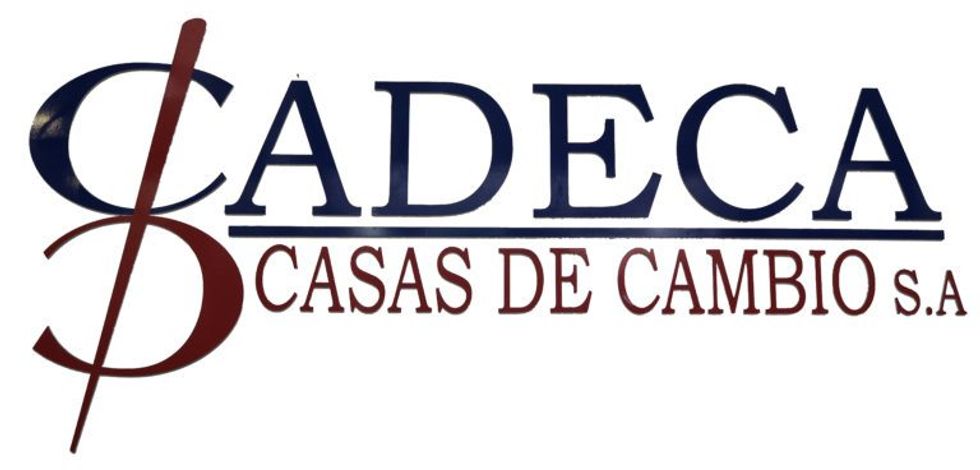
What they didn't know, like most other Americans, is that while relations between the US and Cuba is slowly getting better, there are still fees for using the USD.
Any Cadeca will charge a 10% commission fee for converting USD into CUC, or Cuban Convertible dollars, aka “Tourist Currency," not to be confused with the CUP, or “Moneda Nacional" for the locals. The smart technique is to exchange Euros in advance and use that to exchange into local currencies while abroad.
Here's some info to give you an idea:
This is CUC or tourist money:
Any bill with a face on it is Moneda Nacional, or CUP mostly used by locals:
$1 USD should = $1 CUC, but costs $.87 after the commission is taken out
$1 CUC = $24 CUP
Oh, and the most important part about planning your finances is that you CANNOT withdraw money from any ATM in Cuba, nor can you use any of your credit cards, so you need to bring enough cash money to last the entirety of your trip.
For more information on money tips: https://www.visitcuba.com/travel-guide/travel-tips/
Prep Your Tummy
To put it simply, cuisine in Cuba is an overall pretty crappy experience because of their many years of isolation, and the fact that all rich restaurant owners fled to different countries when the revolution wiped out the rich (hospitality savvy) class. Aside from the political reasons that cultivates crummy food, the water quality produces limp fruits and veggies. I swore I ate a watermelon that was so dry it had the texture of a cookie. Be sure you understand that this will not be the best culinary experience of your life. Privately-owned restaurants are still learning how to cater to the Western world's standard of service. Here are tips to survive the stomach pains:
Beware of the Water
Water in Cuba might will give your stomach a poopy time, literally. Some good advice would be to pack enough probiotics to last your entire trip, and to take a few days before you even leave. Bring Immodium AD and Pepto Bismol for if and when things get bad; these medications are nearly impossible to find there. While Cubans are immune to the terrible water, tourists will not withstand its wrath. Even if you're not chugging glasses of tap water, you'll most likely drink a mojito with ice cubes made from tap water – watch yourself.
Bring Snacks
My first few days, I was craving chocolate like never before. It seemed like there were no stores that sold cookies, chocolate, or anything in general, because there were barely any stores. At this point in time, Cuba is the furthest thing from having a consumerist culture, things are extremely difficult to get, stock, sell, and buy.
The few grocery stores that there are sometimes require you to wait in four lines; one to check your bag, another line to get inside of the store, another to order basic things from behind the counter (i.e. hair products, cookies, basically anything that you'll really need), and another line to check out. It's a struggle, so I suggest you bring extra snacks that you know you'll miss to avoid major chocolate withdrawals like I did.
Going out to Eat
You might see windows on the street, or “cafeterias" selling pizza, spaghetti, or simple sandwiches, which I've eaten in, and never had any major problems. If you have a sensitive stomach, you might want to stay away from “street meat." You'll also see Paladares, which are privately-owned restaurants inside locals' homes. The name comes from a Brazilian novella about a poor woman turned millionaire after opening her own small restaurant in her home called “Paladar."
The service in these privately-owned restaurants is usually way better than at government-owned restaurants, which make you feel like your middle school cafeteria, served at five star standards. How do you know if it's a government-owned restaurant? If the servers all look the same and greet you with a less than impressed gaze or boredom, you're at a government-owned restaurant.
Pack Extra Clothes and Toiletries
This one is the opposite of advice I'd normally give for long trips, but here's why you need to pack a little extra to go to Cuba. Most Cubans have challenges affording basic things like hygiene products, clothes, shoes, etc. There is also a shortage of things like paper goods; paper plates, paper towels, toilet paper, etc. Things that we take for granted every single day in The States is a reason to celebrate in Cuba. When the average salary of a Cuban is equivalent to $20 USD a month, there's no way every Cuban can achieve a standard of living beyond simply surviving.
You'll notice that the airport check-in for baggage to Havana will be bigger than any you'll ever see; family members returning to home will bring back massive flat screen TVs and duffle bags filled with lotions, Ziplock bags, and clothes.
Even if you're a backpacker, you can probably pack a few extra shirts that you've only worn once, that will make all the difference to a Cuban.
On our first day, we met a Cuban man named Frank who passed the sketch-o-meter test. All he asked was for clothes he could give to his sisters in exchange for local information. Fast forward and we had a full day of Havana sightseeing and paid him back in four tank tops and shorts that I've worn in videos 324908 times that I didn't really need.
And Lastly…
And so, while Cuba is still difficult to get to as an American, I can confidently say that it's been one of the most gratifying, profound, and eye-opening trips I've taken. I highly recommend you experience it all for yourself through a local lens. Be prepared to strip yourself out of your comfort zone, put your gadgets and gizmos away, and get lost in time for the very first time.
Is Cuba on your travel bucket list? What places are you trying to travel to before you die? Let us know in the comments below!
*Article Originally Published On Shut Up And Go
Damon and Jo are two travel YouTubers who are changing the face of the travel industry with a backpack, multiple languages under their belt, and only a few dollars to their name. Check out their travel and day-to-day adventures by subscribing to their YouTube channel and by keeping up with their Shut Up And Go travel blog.



